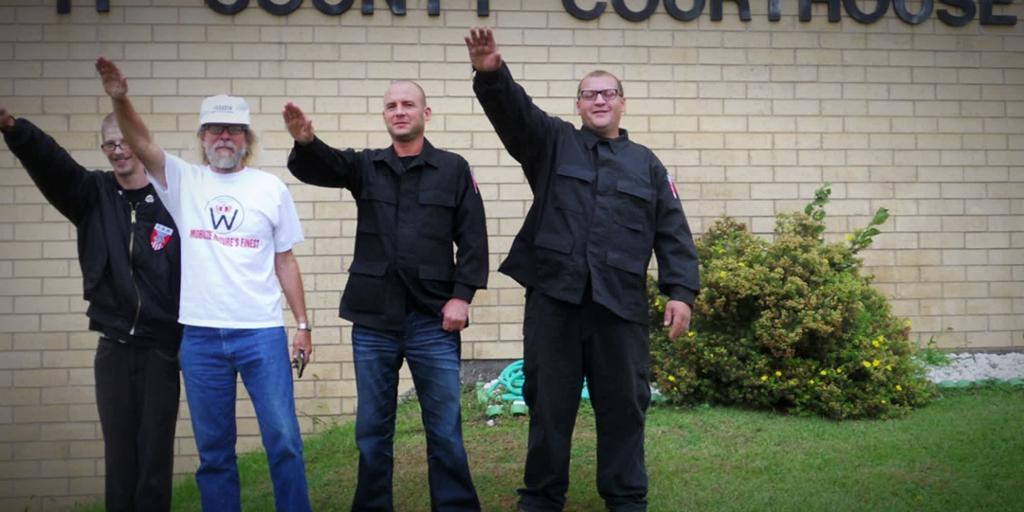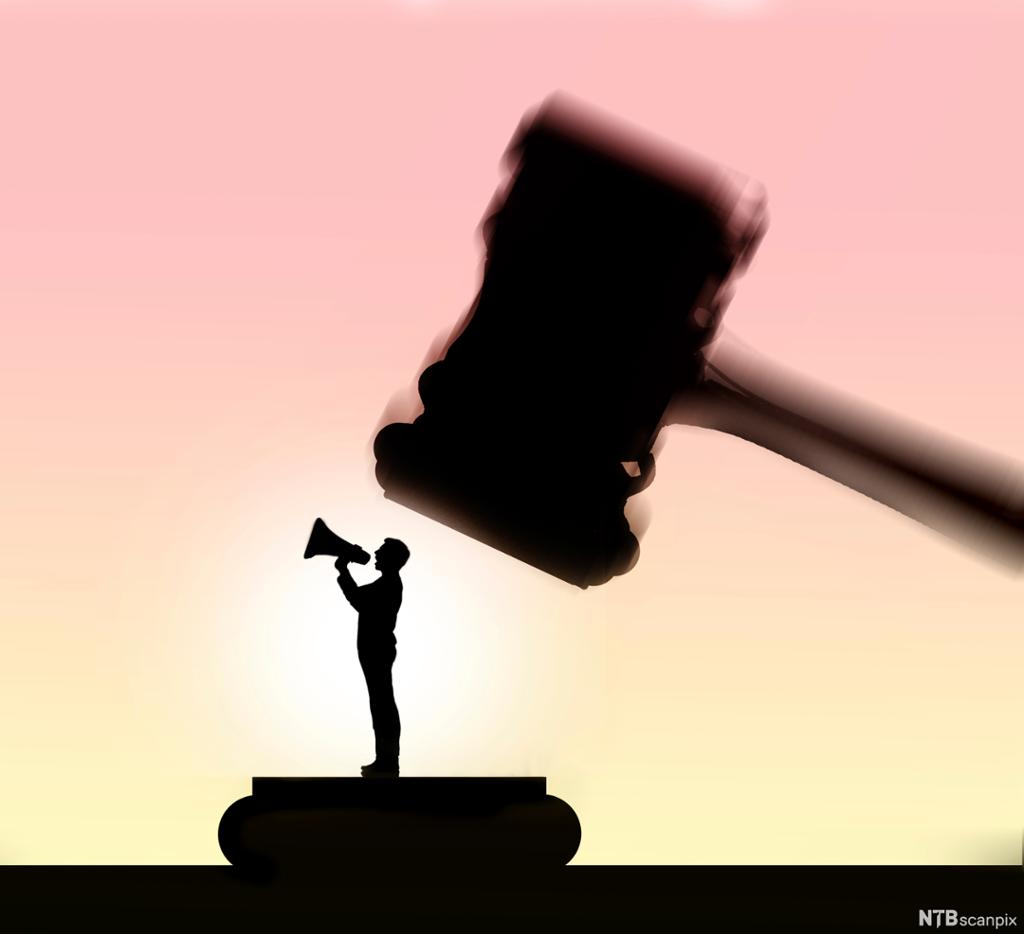Tasks: Welcome to Leith

- What do you think the Leith community was like before Craig Cobbs moved in?
- What is your impression of Craig Cobbs?
- How do you think a society changes after an experience like this?
- What would you have done if your town had been threatened in a similar way?
- The United States has a very strong focus on individual freedom and individual rights. From what you see in the documentary and from what you already know about the United States, is Cobbs breaking the law at any point?
- The filmmakers are trying to cover both sides of the story. Do you feel they are able to stay objective to everything that takes place?
Step 1: Individual work
Freedom of speech doesn't apply only to the words that come out of your mouth. It also applies to a number of different forms of activities and expressions, such as the display of political or religious symbols, how you choose to dress, political activism, and many other things.
Below you will find a list of hypothetical scenarios that may or may not be in conflict with free speech. Your task is to decide whether or not the government — in your opinion — should have the right to limit or punish the speech contained in the situation. Give each situation a score using the criteria in the box below.
- A person spreads malicious lies about a politician during an election campaign.
- A person publishes the address and telephone number of a controversial politician, encouraging people to make contact to express their views.
- A person flies a Nazi flag outside his / her home.
- A person burns the nation's flag in protest of government policies.
- A person creates a web page asking people to support an anti-war agenda.
- A person flies a drone over his neighbour's house, taking pictures.
- A person writes and publishes an essay about the superiority of his or her race.
- A person criticises the government on a blog site about public policies.
- A person publishes a video on social media from a party where some of the participants are very drunk.
- A student criticises the principal and teachers on social media.
- A person creates a pro-terrorist website that asks people to join terror groups in order to overthrow the government.
- A student threatens violence against his school on social media.
- A person posts online that someone should assassinate a named politician.
- A person writes a newspaper article expressing his misogynistic and sexist views.
Step 2: Class discussion
Tally your score.
Line up from least restrictive interpretation (lowest total score) in one end of the room, to most restrictive interpretation (highest total score) in the other end of the room. Be prepared to explain your reasoning.
- How open to free speech is your class as a whole?
- How do you compare with your classmates?
- Which of the activities described above spark the most disagreement?
Step 1: Find out more about the First Amendment to the American Constitution.

It can be difficult for us to understand why no one stops Craig Cobbs in his attempt to create a white nationalist community in Leith, but the fact of the matter is that most of his actions are protected by the First Amendment to the American Constitution.
The Bill of Rights is the collective name for the first ten Amendments to the Constitution, and they guarantee the civil rights and liberties of the individual. The First Amendment, guaranteeing free speech, is considered to be the most important amendment by most Americans. Also, it is regarded as a very important cornerstone of the American democracy.
Read through the First Amendment and explain what it actually says, using your own words. The Bill of Rights was written in 1789, so the language is a bit old-fashioned.
Congress shall make no law respecting an establishment of religion, or prohibiting the free exercise thereof; or abridging the freedom of speech, or of the press; or the right of the people peaceably to assemble, and to petition the Government for a redress of grievances.
- There are limitations to the First Amendment. Use the website from Freedom Forum and find out what is not protected by the First Amendment (point 3 on the website): link to Freedom Forum website. Click on each of the ten 'unprotected categories' and make sure you understand what they mean.
Step 2: How is the First Amendment put into practice?
You will sometimes find that one person's right to free speech is in direct violation of someone else's free speech or human rights.
Below, you will find five examples from the United States where people have experienced conflicting views with regards to free speech. Go through the five cases and discuss whether or not you think the person in question was in the right when arguing that he was protected by the First Amendment.
Task 1:
Write an argumentative text where you discuss to what extent there should be limitations to free speech in society. Present at least three examples where free speech could be in conflict with the law or with people's general understanding of decent behaviour. Remember to refer to your sources in a clear way.
Task 2:
For a long time, Twitter gave former President Donald Trump an uncensored platform where he could express his political views. However, in May 2020 Twitter started to fact check his statements and many of them were marked as 'misleading' or 'unsubstantiated'. Trump answered by launching an Executive Order on Preventing Online Censorship, which states:
In a country that has long cherished the freedom of expression, we cannot allow a limited number of online platforms to hand pick the speech that Americans may access and convey on the internet. This practice is fundamentally un-American and anti-democratic. When large, powerful social media companies censor opinions with which they disagree, they exercise a dangerous power. They cease functioning as passive bulletin boards, and ought to be viewed and treated as content creators.
After right-wing extremists breached Congress to overturn the result of the 2020 Presidential Election on 6. January 2021, most of President Donald Trump's social media accounts were suspended.
Write a text where you discuss the role of social media in societies where free speech is highly valued. Should social media platforms only be 'passive bulletin boards', or do they have a responsibility to fact check or even censor controversial statements? Discuss the consequences of both scenarios.
Task 3:
In recent years, we have seen that people have been reluctant to accept election results they disagree with, for example the 2016 Brexit referendum or the 2020 US presidential election.
Write a text where you discuss what the difference is between acceptable protest and insurrection that will damage democracy. Use relevant sources.
Guoskevaš sisdoallu
The film 𝘞𝘦𝘭𝘤𝘰𝘮𝘦 𝘵𝘰 𝘓𝘦𝘪𝘵𝘩 shows how challenging free speech can be in a democratic society.